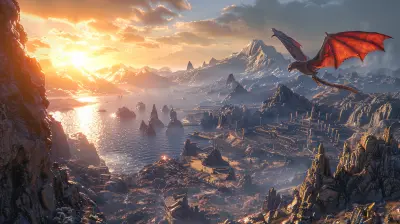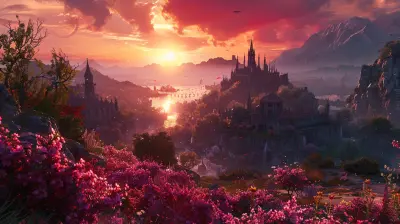The Importance of Factions and Guilds in Fantasy Worlds
11 July 2025
Let’s be real—fantasy worlds without factions and guilds? That’s like a burger without the meat. Sure, you’ve got the bun (your world-building), a bit of lettuce (maybe some cool magic), but without the factions and guilds? You’re missing the entire flavor.
These elements breathe life into fantasy settings. They add politics, friendship, betrayal, identity—heck, they even give direction to the story or the player in a game. Whether you're reading a book, watching a fantasy series, or diving into an open-world RPG, factions and guilds are the invisible gears that make the world tick.
In this article, we’re going deep—like, dungeons-under-the-dark-tower deep—into why these groups are essential to fantasy worlds. So strap in, adventurer. Let’s talk loyalty, power plays, and secret handshakes.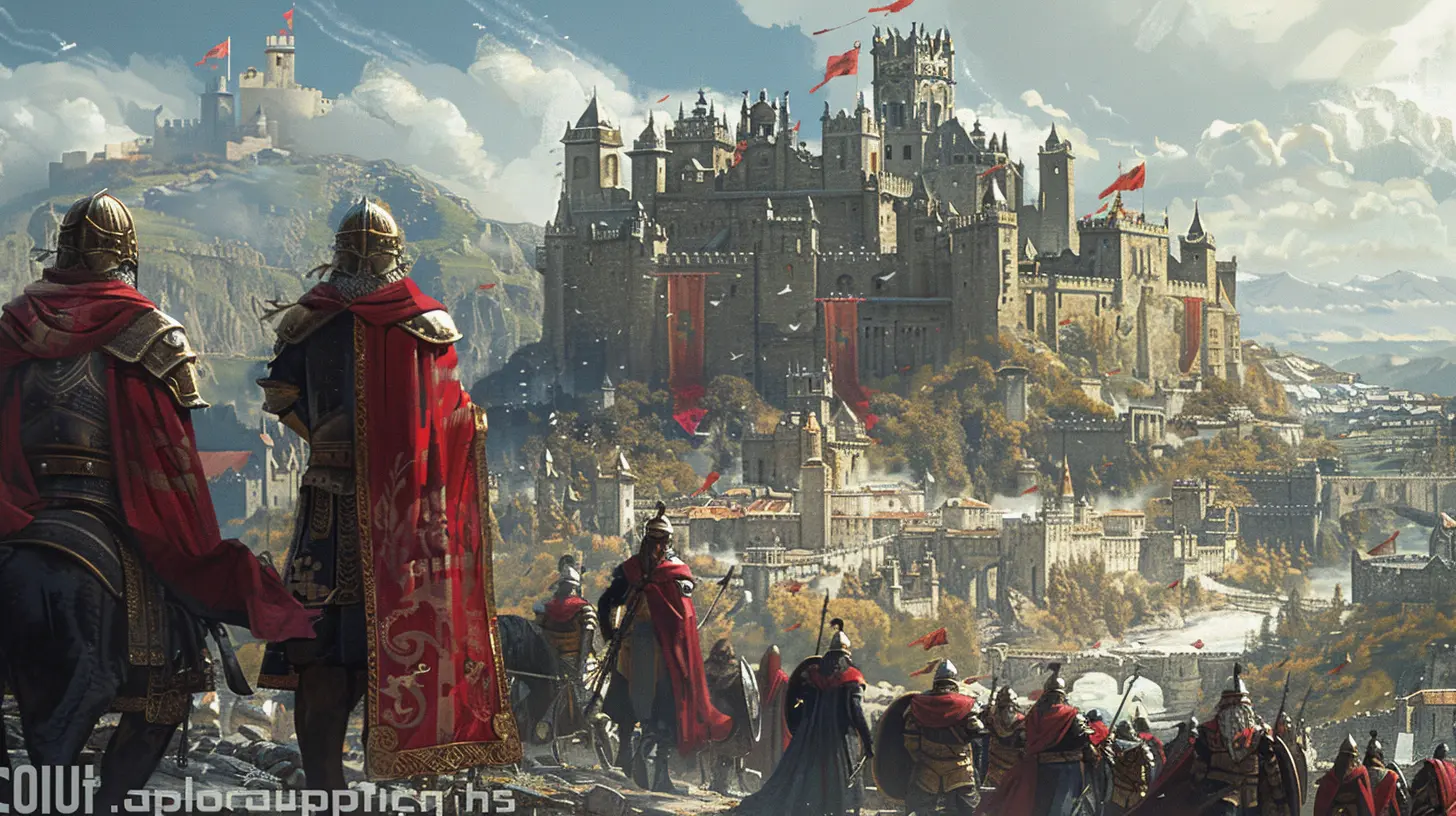
What Are Factions and Guilds, Anyway?
Before we start throwing around terms like "Thieves' Guild" and "Iron Fangs," let’s clarify what we mean by factions and guilds.- Factions are groups that usually represent a particular ideology, race, culture, religion, or agenda. Think of them as the big-picture organizations in a game or story—kingdoms, cults, rebel forces, etc.
- Guilds, on the other hand, are more focused. These are often professional or skill-based groups, like mage guilds, warrior lodges, or even merchant collectives.
They both play slightly different roles, but their importance? Equally massive. Together, they shape politics, personal goals, and practically every part of a fantasy world.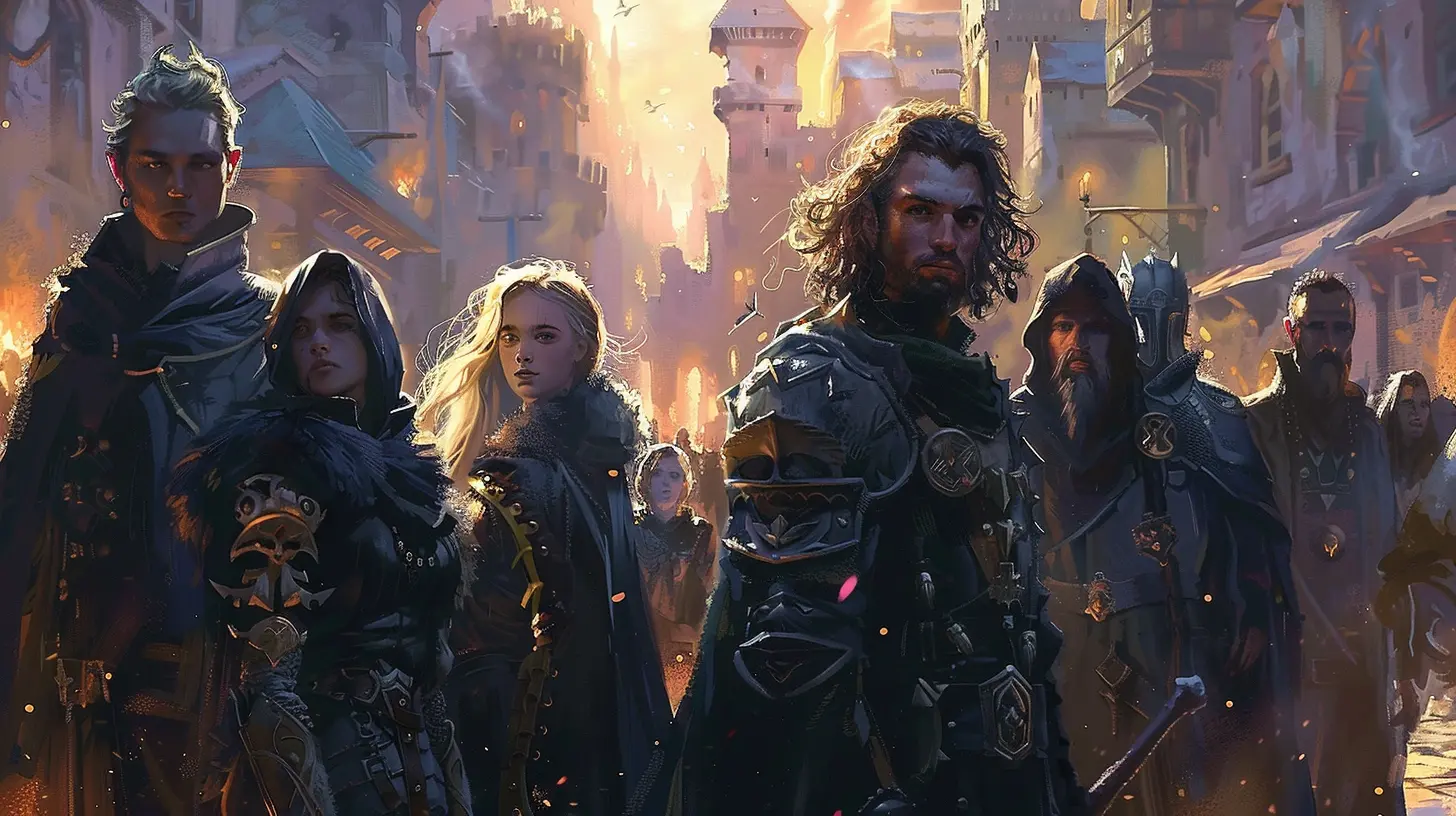
World-Building: The Backbone of Fantasy
Imagine walking into a beautifully rendered fantasy city. The towers pierce the clouds, dragons circle in the distance, and magical lights float through the air. Cool, right? But without factions and guilds, it’s just empty pixels.These groups give the world depth. They turn a pretty setting into a living, breathing society.
Think about it—who controls the city gates? Who's running the underground resistance? Why are the mages hoarding ancient scrolls? Factions and guilds provide those answers. They help define:
- Politics – Who’s in charge and why?
- Conflict – Who hates who, and what’s the beef?
- Identity – Where do individuals belong?
- Economy – Who controls trade, magic, or manpower?
You’re not just playing a game—you’re stepping into a society with layers.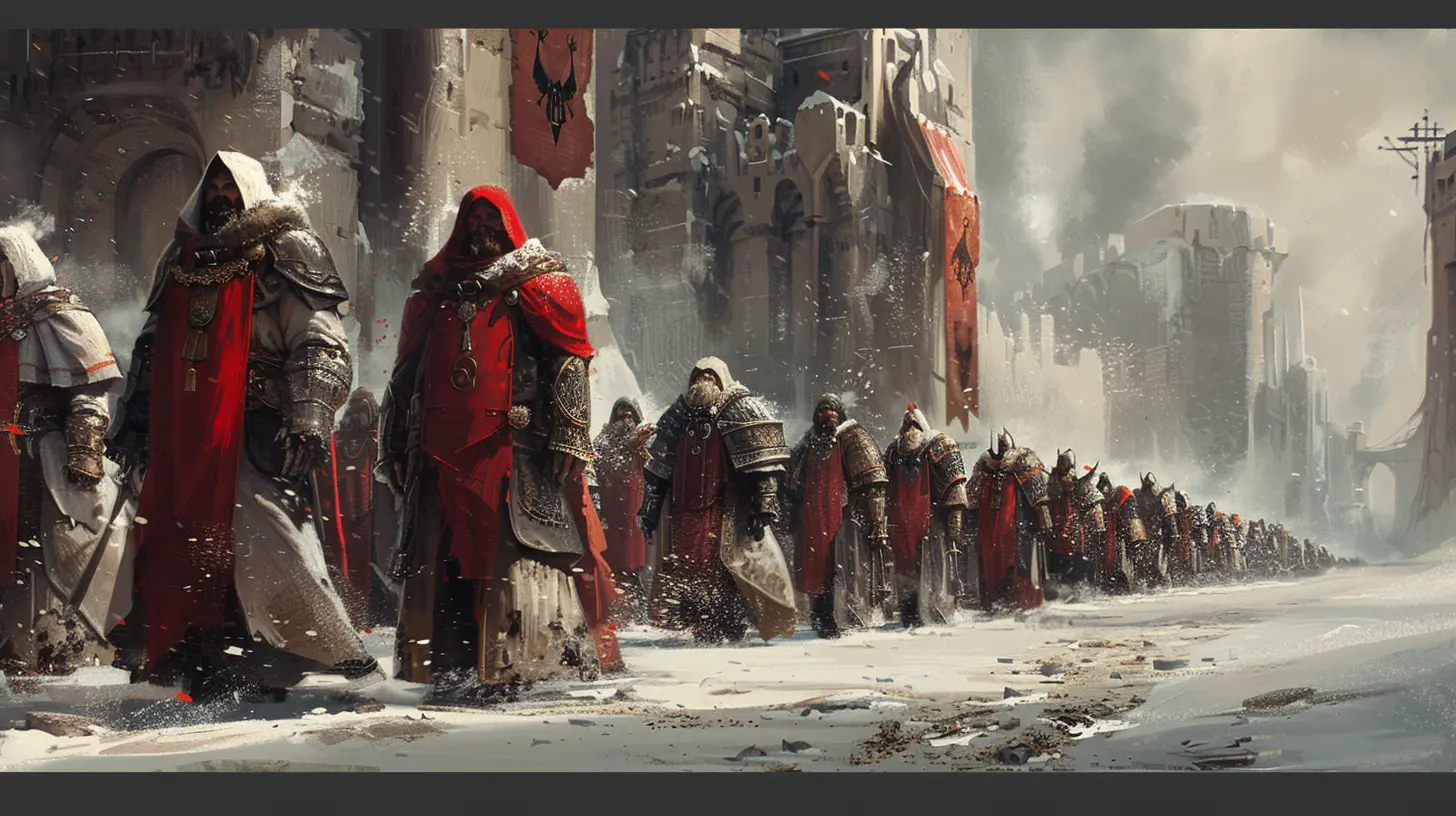
Player Choice and Immersion
Let’s switch gears to games for a sec. Factions and guilds seriously level up gameplay mechanics and character development.Remember in games like Skyrim when you had to choose between the Imperials and the Stormcloaks? Or when you joined the Dark Brotherhood, full of shadowy assassins and whispered oaths? That choice didn't just change your questline—it changed how you felt playing the game.
When done right, factions and guilds offer:
- Meaningful decisions – You’re not just leveling up; you’re picking sides.
- Unique rewards – Think faction-specific gear, spells, or mounts.
- Branching stories – Different guilds unlock different story arcs.
- Reputation systems – Be loved or feared based on your allegiances.
This level of immersion makes your character feel like they matter in the grand scheme of things. You’re not just another wanderer with a sword—you’re a respected mage in the Arcane Circle or a feared thief from the Shadow Veil.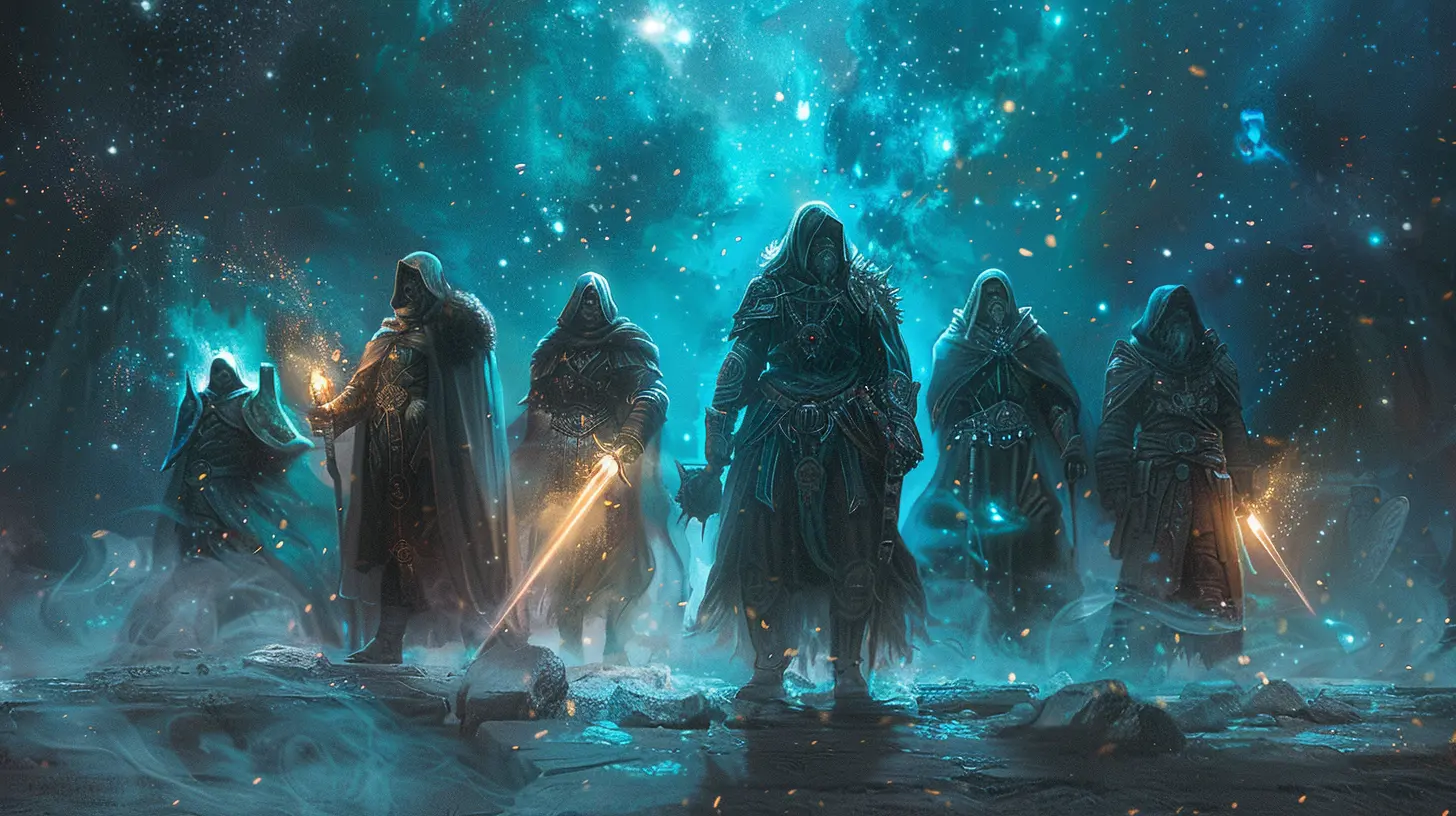
Social Dynamics and Conflict
Let’s face it—drama sells. And nothing stirs the pot like faction rivalry.Factions and guilds naturally create conflict, which is the heartbeat of any good story. No one wants to watch a world where everyone agrees and holds hands. Snoozefest, right?
Rivalries between groups introduce:
- War and Skirmishes – Epic battles between kingdoms or cults.
- Espionage and Betrayal – Spies, double agents, and betrayals that make your jaw drop.
- Cultural Tension – Elf vs. Dwarf dynamics, or magic-haters vs. spellcasters.
- Moral Dilemmas – Who’s really in the right? The “evil” necromancers... or the corrupt paladins?
These dynamics push stories forward and give players something real to fight for—or against.
Identity and Belonging
Let’s get a little philosophical here for a minute.In real life, humans are wired to seek identity. It's why we join clubs, identify with fandoms, wear jerseys, and sport tattoos. Fantasy mirrors that—people want to belong to something bigger than themselves.
Guilds and factions offer a sense of belonging. Whether you're a knight of the Silver Order or a rogue in the Crimson Daggers, you’re part of a group that shares your values, skills, or goals.
This sense of identity:
- Strengthens role-play – Helps players flesh out their character’s backstory.
- Fuels emotional investment – You care more when your faction is in danger.
- Builds community – In multiplayer games, faction/guild chat and allegiance create bonds.
And honestly? Sometimes it’s just fun to wear the colors and throw rivals some side-eye.
Lore and History: Filling in the Blanks
Ever notice how the best fantasy worlds have rich backstories? Ancient wars, forgotten kings, mysterious artifacts... Yeah, factions and guilds are usually right in the middle of those tales.They act as storytelling anchors, making the lore not only deep but interconnected. Even in games where you never meet a certain guild, their reputation and history shape how NPCs behave and how the world reacts.
Some examples of this include:
- Founding legends – A guild born from the ashes of a fallen kingdom.
- Ancient betrayals – One faction’s treason ignites a centuries-long war.
- Sacred artifacts – Magical items tied to specific faction lore.
- Prophecies – Chosen ones tied to certain guilds or bloodlines.
This level of storytelling adds that extra oomph that fans rave over for years.
Game Mechanics and Structure
Let’s nerd out a bit.From a game design perspective, factions and guilds are a genius way to organize content. Think about it—they naturally break up the world into digestible chunks.
- Questlines – Each group provides its own line of missions and objectives.
- Leveling systems – Progression within a guild can act like a mini-game.
- Specialization – Warriors flock to combat guilds, mages to magical academies.
- Economics – Trade guilds run the economy, smiths craft the gear, thieves run the black market.
This structured approach makes the open world feel cohesive, not chaotic. It’s like walking into a library where everything’s organized by genre—you know where to go, what to do, and who you're dealing with.
Evolution and Player Impact
One of the coolest things? Factions and guilds evolve based on player or protagonist actions.Ever helped your guild rise to power? Or watched a once-thriving faction collapse because of betrayal or war? That’s gold.
This evolution keeps the world dynamic and responsive. It tells the player, “Hey, your actions matter here.”
Imagine:
- Turning a small rebellion into the new ruling kingdom.
- Corrupting a holy guild from the inside.
- Reuniting two rival factions after centuries of hate.
These moments aren't just cool—they’re memorable. They stick with players for life.
Online Multiplayer: Where Guilds Shine Brightest
If you’re into MMORPGs or online co-op games, you already know: guilds are not just for lore—they’re how you survive.From World of Warcraft to Final Fantasy XIV, guilds create epic social structures:
- Raiding parties and dungeon runs
- Guild wars and PvP dominance
- Crafting and resource sharing
- Leadership dynamics and drama (oh yes, there will be drama)
Being part of a guild in an MMO isn’t just tactical—it’s emotional. You cheer together. You fail together. You rage-quit... together.
It’s the ultimate blend of game mechanics and human behavior.
Factions and Guilds: Not Just Side Features
Here’s the kicker—factions and guilds aren’t just decorative. They're not the parsley on the steak. They ARE the steak.They influence:
- Narrative direction
- Gameplay structure
- Emotional investment
- Social dynamics
- World-building depth
So whether you’re a game dev, a fantasy writer, or just someone who loves getting lost in fictional universes, don't sleep on these powerhouses.
They’re the glue holding your fantasy realm together.
Final Thoughts
At the end of the day, factions and guilds are more than just cool names and colorful banners. They’re the heart of every great fantasy world. They give structure to chaos, fuel to conflict, and identity to our characters.Without them, fantasy doesn’t just lose complexity—it loses soul.
So the next time you’re roaming a vast fantasy world, and you have to decide between joining the noble Lionhearts or the rebellious Black Talons, ask yourself—who are you? That’s the magic of factions and guilds. They make you choose, and in making that choice, you become part of something bigger.
Now go forth, adventurer. Pick a guild. Raise your banner. And change your world.
all images in this post were generated using AI tools
Category:
Fantasy GamesAuthor:

Lucy Ross
Discussion
rate this article
2 comments
Veda McLean
Great read! Factions and guilds truly enrich fantasy worlds, adding depth and intrigue to gameplay. They create a sense of community and rivalry that makes every quest feel more immersive. Can’t wait to see your next article!
December 2, 2025 at 4:13 PM

Lucy Ross
Thank you! I'm glad you enjoyed it. I appreciate your insights on how factions and guilds enhance immersion. Stay tuned for more!
Kristy Simmons
Absolutely loved this article! Factions and guilds bring so much depth and excitement to fantasy worlds, making adventures truly epic. They enhance camaraderie and rivalry, creating memorable experiences for players. Can’t wait to dive back into my favorite game and explore these dynamics! 🌟🎮
July 14, 2025 at 3:50 AM

Lucy Ross
Thank you for your enthusiastic comment! I’m glad you enjoyed the article and appreciate the depth factions and guilds bring to fantasy adventures. Happy gaming! 🌟🎮
